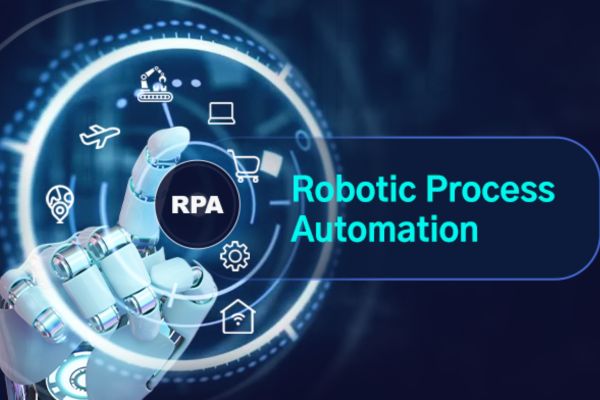According to Precedence Research, the global robotic process automation in legal services market size was valued at USD 2.69 billion in 2024 and is expected to reach around USD 13.09 billion by 2034, growing at a CAGR of 17.14%.
Robotic Process Automation in Legal Service Market Key Points
- North America led the global market, capturing the largest share of 40% in 2024.
- Asia Pacific is expected to emerge as the fastest-growing regional market in the coming years.
- In terms of application, the document management segment held the largest market share in 2024.
- The contract management segment is anticipated to witness the fastest CAGR over the forecast period.
- By deployment type, the on-premises segment held a significant share in 2024.
- Meanwhile, the cloud-based segment is expected to grow at the highest CAGR during the forecast years.
- By process type, the rule-based processing segment dominated the market in 2024.
- The knowledge-based processing segment is projected to grow rapidly in the upcoming years.
- Among end-users, the law firms segment accounted for the largest market share in 2024.
- The corporate legal departments segment is forecasted to register the fastest growth rate in the coming years.
How Is AI Transforming Robotic Process Automation in Legal Services?
AI plays a crucial role in enhancing Robotic Process Automation (RPA) in the legal services market by enabling automation of more complex, knowledge-driven tasks. Through technologies like Natural Language Processing (NLP) and machine learning, AI allows RPA systems to understand and process legal documents, manage contracts, assist in compliance monitoring, and predict legal outcomes.
This transformation helps law firms and corporate legal departments streamline document management, legal research, client communications, and case analysis with greater accuracy and speed.
Moreover, AI-powered RPA improves efficiency by automating smart contract management, supporting client interactions through chatbots, and enabling adaptive learning where bots continually refine their processes.
By integrating AI, RPA not only handles repetitive administrative work but also augments decision-making, risk assessment, and knowledge management in legal practices, leading to significant time and cost savings.
Robotic Process Automation (RPA) in Legal Services: Overview
Robotic Process Automation (RPA) in legal services refers to the use of software bots to automate routine, rule-based tasks that are traditionally performed by legal professionals. These bots are designed to mimic human interactions with digital systems, such as reading documents, extracting information, filling out forms, and communicating with clients, all without requiring changes to existing IT infrastructure. By automating these repetitive tasks, RPA helps legal teams operate more efficiently and accurately.
In the legal sector, RPA is making a major impact by streamlining operations, reducing operational costs, and minimizing human error. Common applications include document management, contract review, compliance tracking, client onboarding, billing, and legal research. By handling large volumes of repetitive work, RPA allows lawyers and paralegals to focus on more strategic, high-value activities like client counselling, litigation strategy, and negotiations.
The key benefits of RPA in legal services include increased efficiency, cost savings, improved accuracy, scalability, and enhanced client service. Tasks that once took hours can now be completed in minutes, leading to faster turnaround times and greater client satisfaction. Additionally, the risk of errors in important legal processes — such as compliance checks and contract management — is significantly reduced.
Looking ahead, the integration of Artificial Intelligence (AI) technologies like Natural Language Processing (NLP) and Machine Learning (ML) with RPA is ushering in the era of Intelligent Automation in legal services. This evolution enables bots not only to automate simple tasks but also to perform complex analysis, decision-making, and even predictive forecasting for legal outcomes, further transforming the way legal work is delivered.
What Is the Growth Outlook for the U.S. Robotic Process Automation in Legal Services Market?
In 2024, the U.S. robotic process automation (RPA) in legal services market was valued at USD 753.20 million. It is expected to grow significantly, reaching around USD 3,737.52 million by 2034, with a projected compound annual growth rate (CAGR) of 17.37% from 2025 to 2034.
Regional Outlook for Robotic Process Automation in Legal Services Market
North America dominates the RPA in legal services market, accounting for over USD 1.08 billion in 2024, driven by advanced technological infrastructure and high efficiency demands. Rising workloads in legal departments, as highlighted by the CLOC 2025 Report, and the American Bar Association’s endorsement of legal tech tools further accelerate adoption. Canada is also embracing RPA for case filing and e-discovery, particularly in provinces like Ontario and British Columbia.
Asia-Pacific emerges as the fastest-growing region, fuelled by economic expansion in China, India, Japan, and Australia. Governments in these countries actively promote digital transformation, with India’s legal tech startups and Japan’s RPA solutions addressing labour shortages. Contract automation, compliance tracking, and document management are key use cases. The region’s cloud-based RPA adoption is notable for scalability, though data security concerns persist in some areas.
Europe demonstrates steady growth, led by the UK’s 356 Law Tech companies investing in RPA for contract analysis and compliance. Regulatory frameworks like GDPR drive demand for AI-powered encryption tools, while on-premises RPA remains popular for data security. However, cloud migration is gradually increasing, especially among firms prioritizing cost efficiency and remote collaboration.
Segmental Insights of Robotic Process Automation in Legal Service Market
Process Type Insights
The rule-based processing segment dominated the market in 2024, as legal firms widely adopted RPA to automate repetitive tasks such as data entry, document management, and compliance workflows. This segment minimizes human errors and allows professionals to focus on strategic work. Meanwhile, the knowledge-based processing segment is projected to grow fastest, driven by AI-powered tools for legal research, contract analysis, and risk management. These systems handle complex tasks requiring contextual understanding, such as compliance checks and predictive analytics, aligning with the rising volume of legal data globally.
Application Insights
Document management held the largest market share in 2024, addressing high-volume paperwork in litigation, compliance, and client communication. RPA streamlets indexing, retrieval, and error reduction, enhancing operational efficiency. The contract management segment is anticipated to grow at the highest CAGR (2025–2034), driven by rising contract complexity and volume. RPA automates contract creation, review, and monitoring, ensuring compliance through real-time alerts and deadline tracking.
End User Insights
Law firms led the market in 2024, leveraging RPA to reduce costs, improve compliance, and streamline repetitive tasks like case filing and e-discovery. The corporate legal departments segment is set to grow fastest, as organizations prioritize automation for contract management and regulatory compliance. AI integration enables corporate teams to analyze risks and align legal workflows with business goals, particularly in industries with stringent regulatory demands.
Deployment Type Insights
On-premises solutions accounted for a significant share in 2024, preferred by law firms for data security and compliance with regulations like GDPR. These systems offer full control over sensitive client data. Conversely, the cloud-based segment is projected to grow at the highest CAGR, fuelled by remote work trends, scalability, and cost efficiency. Advances in cloud security, such as AI-driven encryption, are making cloud platforms a viable choice for handling confidential legal documents.
Recent Developments
- In March 2025, Consilio introduced Aurora, a Digital Enterprise Platform that enhances legal data management, allowing teams to standardize on one platform while maintaining flexibility across various solutions.
- In November 2024, Globant announced its Legal AI Studio, designed to boost competitiveness and efficiency in the legal sector with AI-powered solutions tailored for legal departments, law firms, and public administrations.
- In January 2025, Alexi unveiled Advanced Legal Reasoning (ALR), an AI litigation platform aimed at improving litigators’ analysis of complex legal issues, representing a significant advancement in legal technology.
Robotic Process Automation in Legal Service Market Companies
- Appian
- Automation Anywhere
- Blue Prism
- IBM
- Kofax
- Legility
- LexMachina
- Luminance
- Microsoft
- NICE
- Pega
- ThoughtSpot
- UiPath
- WorkFusion
- Zaloni
Source: https://www.precedenceresearch.com/robotic-process-automation-in-legal-service-market

















